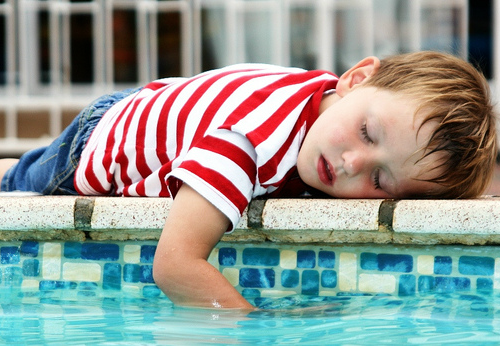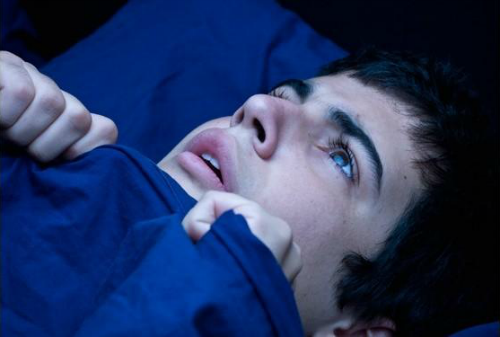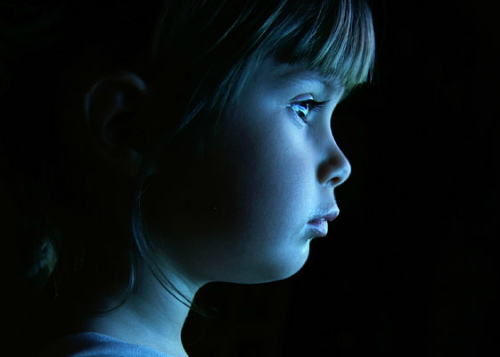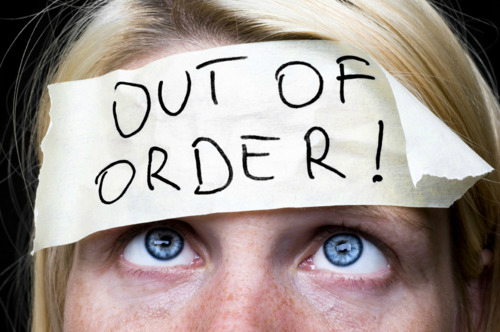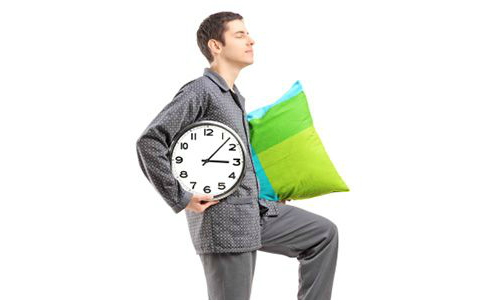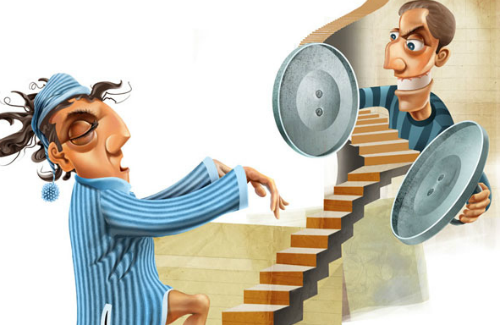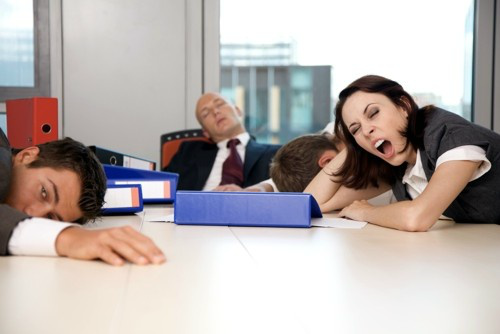A special research published in JAMA Pediatrics, which was conducted by Dr. Jacques Montplaisir and fellow associates, determines a possible connection between childhood sleepwalking or sleep terrors and parental history of sleepwalking. This exposes the supposed genetic link associated with the disorder.
Sleepwalking age: 3-7 yrs.
Sleep terrors age: 4-12 yrs.
Having mentioned these numbers, both disorders are found to continue until adulthood while they usually dwindle during adolescence.
Sleepwalk & Sleep Terrors Research Report
1,940 children born in 1997 and 1998 were assessed during the study led by Montplaisir. These children aging from 1.5 and 2.5 yrs. through 13 yrs. were part of Quebec Longitudinal Study of Child Development.
Besides the genetic link, the study also revealed a potential interconnection between sleepwalking and sleep terrors. A good 34.4% of children who experienced sleep terrors while aging between 1.5 and 3.5 yrs. suffered sleepwalking at 5 yrs. & above when compared with 21.7% of children with no signs of sleep terrors in their early childhood.
“These findings point to a strong genetic influence on sleepwalking and, to a lesser degree, sleep terrors. This effect may occur through polymorphisms in the genes involved in slow-wave sleep generation or sleep depth,” commented the researchers. “Parents who have been sleepwalkers in the past, particularly in cases where both parents have been sleepwalkers, can expect their children to sleepwalk and thus should prepare adequately.”
Children with any one parent who has had a sleepwalking history incurred 3x probability of experiencing sleepwalking; on the other hand, the probability elevated to 7x when both parents have had sleepwalked in the past.
Report Drawbacks
The authors noted “Although recognizing sleepwalking is usually not difficult for parents, the identification of sleep terrors can be more problematic,” stating that the report has some limitations, “Our questionnaire contained an operational definition for sleep terrors, but it is nevertheless possible that some parents mistook nightmares for sleep terrors and vice versa.”
To add to the report, just a year back, a published study was reported by Medical News Today which showed how bad childhood experiences become roots of such parasomnias later. The researchers reported that those children who faced bullying from 8 to 10 yrs. experienced nightmares, sleep terrors, and sleepwalking at the age of 12 yrs.
Symptoms
It may be very difficult to wake up sleepwalkers. Sleepwalking is studied to occur during the slow-wave cycle of sleep i.e. the first third session of a nighttime sleep or any other long sleep period. It can also frequently occur during a daytime nap.
Sleepwalkers are generally observed to behave strangely and violently posing risks to themselves and the people around. Here are the possible symptoms:
- Confusion
- Glassy-eyed expression
- No remembrance of the events occurred
- Sleep terrors
- Aimless walking
- Getting out of bed
- Sitting up straight
- Opening eyes while still asleep
- Performing daily actions/routine while still asleep
- Returning to sleep quickly
In extreme and rare cases:
- Getting injured
- Leaving the house
- Driving a vehicle
- Performing sexual activities without consciousness
- Executing inappropriate behavior (e.g. urinating in trash can)
- Attacking people
Causes
Sleepwalking could be hereditary as explained previously. However, there are other factors which could pose a threat of developing the sleep disorder:
- Obstructive sleep apnea (OSA)
- Stroke
- Lack of quality sleep
- Disturbance through light or noise
- Head injury
- Alcoholism
- Emotional trauma
- Migraine
- Change of sleep location
- Excessive traveling
- Brain swelling (encephalitis)
- Particular medications
- Fevers
- Hyperthyroidism
- Bloating
- Premenstrual period
What is Scheduled Awakening?
Health expert Associate Professor Harriet Hiscock says, “That resets their sleep cycle, so they go back to sleep again and hopefully sleep through the period when they would have been sleepwalking.”
Indicating sleepwalking as hereditary, Hiscock explains a very useful trick called “scheduled awakening” to discourage the disorder which involves recording the time between falling asleep and beginning to sleepwalk. If it’s consistent, he then recommends registering the time at which the person sleepwalks. After regularly recording and being acquainted with the timings, he asks to wake the person up 20 minutes before his sleepwalking time.
This will eventually help to eradicate his habit of sleepwalking as the sleep cycle gets reset.
Will Waking Up a Sleepwalker Give Him a Heart Attack?
There is a stereotype associated with sleepwalking – some people believe that waking up a person while he’s sleepwalking could cause him a heart attack or make him die because of intense shock. However, Hiscock overthrew the phenomenon labeling these thoughts as a myth.
“You’re not going to give them a heart attack or kill them, but by trying to wake them up – which is usually quite hard to do – you can make them very agitated.”
Having said that, Hiscock also advised not to wake up a sleepwalker, not because one could kill him by doing so, but because one could cause him to be utterly confused and physically violent.
“When someone is sleepwalking they’re sort of stuck between deep sleep and light sleep, and if you try to wake them up they will be very confused and disorientated.”
Why is Sleep Important?
It is no secret that stress could be a major factor causing one to sleepwalk, and so could poor sleep quality. In this modern busy realm, people have learned to run around the clock, but haven’t really managed to keep sleep problems at bay.
According to a recent study, impulsive or bad decision making could be a result of deprived sleep. Self-control, in a way, is related to healthy sleeping patterns explained the study.
June Pilcher of Clemson University said “Exercising self-control allows one to make better choices when presented with conflicting desires and opportunities.” Pilcher continued “Our study explored how sleep habits and self-control are interwoven and how sleep habits and self-control may work together to affect a person’s daily functioning.”
Ill sleeping habits not only affect your personal well-being but also your professional life. The study also suggests avoiding over-spending, substance abuse, and bad habits like gambling coupled with healthy sleeping to see proven improvement in job performance and personal health alike.
